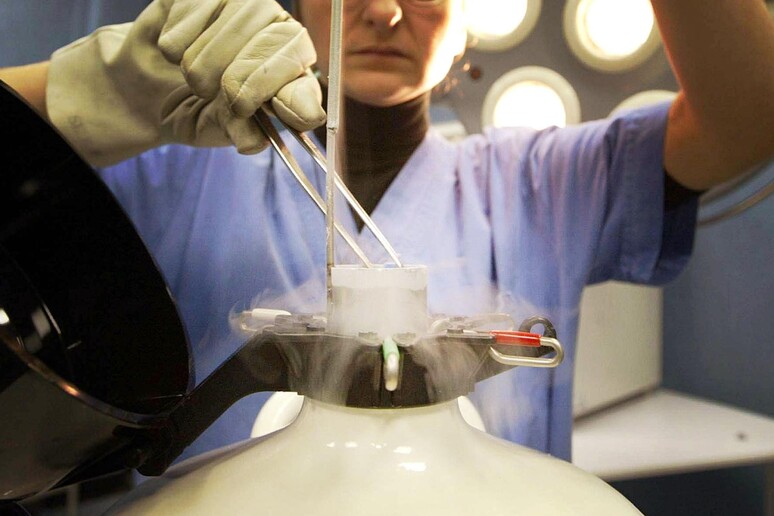Israel has reportedly started to retrieve sperm from fallen troops as a routine measure to grapple with the loss of over 1,200 soldiers since hostilities with Hamas erupted in October 2023.
Under emergency protocols, The New York Times reported, Israeli military hospitals are now extracting and freezing sperm within hours of death, primarily at the request of grieving parents. The procedure no longer requires immediate court approval, though legal authorization is still necessary for any future attempts at conception. Most requests, health officials report, come from families of unmarried soldiers—a demographic that makes up the bulk of Israel’s conscripted military forces.
Posthumous sperm extraction is a technically straightforward procedure involving the retrieval of testicular tissue within 24 to 48 hours of death to ensure viability. The method, first developed in California in the 1980s, has since spread worldwide, though it remains banned in much of Europe.
Although medical guidelines once recommended extracting and freezing sperm within 24–36 hours of death, studies have shown that sperm can remain viable far longer under certain conditions. Even sluggish sperm can achieve conception with a single injection into an egg. To retrieve it, one method involves using a needle to extract sperm directly from the testis. Alternatively, doctors can surgically remove the testis or the epididymis, where sperm mature, and then manually separate the sperm. A third method, electroejaculation, involves inserting a probe into the rectum near the prostate, sending a small electric shock to trigger ejaculation, which can be useful for men with spinal injuries who lack normal reflexes.
The decision to standardize the practice has reignited debate over its ethical implications. Critics argue that the procedure circumvents the fundamental principle of consent as just a few soldiers explicitly document their reproductive wishes, leaving bereaved families to interpret intent based on incomplete or anecdotal evidence. A recent study by Ashkelon Academic College found that nearly half of Israeli men aged 18–50 opposed the idea of their parents deciding to retrieve and use their sperm after death.
Israeli courts legally require clear evidence—written records, videos, or messages—that the deceased intended to father children. The absence of explicit consent has led to prolonged judicial battles, leaving many cases unresolved. Calls for legislative reform are growing, with some advocating for mandatory documentation of reproductive intentions for all soldiers.
The issue is hardly unique to Israel. In Ukraine, another nation shaped by conflict, soldiers have begun freezing sperm before deployment, while new laws allow posthumous use by partners.
In March, President Volodymyr Zelensky signed a bill allowing the use of frozen sperm from deceased soldiers to permit widows of Ukrainian soldiers to use their late husbands’ sperm or eggs to conceive children. The legislation also covers soldiers who are severely injured, enabling them to have children using their preserved reproductive cells when their injuries would otherwise prevent it. The government will cover the costs of storing these cells for three years after a soldier’s death, with provisions to recognize the deceased parent’s biological link on the child’s birth certificate.












